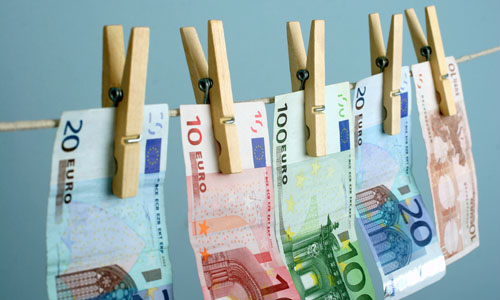Today the Justice and Home Affairs Ministers of the EU unanimously rejected the EU Commission’s proposal for a toughened blacklist of money laundering states. France and the United Kingdom want to remove Saudi Arabia and other countries from the list. Spain has taken a protective stand for Panama. The United States are exerting massive pressure because four US jurisdictions are on the list.
On behalf of the European Parliament, the two responsible committees ECON (Economic and Monetary Affairs) and LIBE (Civil Liberties, Justice and Home Affairs) have signalled their approval of the EU Commission’s list. After its rejection by the Member States, the EU Commission will have to work on a new blacklist. As long as Council and Parliament do not reach an agreement, the existing blacklist will apply. Instead of the 23 third countries recently proposed by the EU Commission, it contains only 16 countries.
Sven Giegold, spokesperson for Bündnis 90/Die Grünen in the European Parliament, commented:
“The rejection of the list by the ministers makes money launderers celebrate. The decision is a gift for financial criminals. Money laundering is a security risk for Europe. With their decision, the ministers are putting security in Europe at risk. European governments have taken the side of autocrats instead of their citizens. Saudi Arabia, Panama and the United States can breathe a sigh of relief. The blacklist is an important instrument against money laundering and terrorist financing. The EU Commission presented a courageous list, but it was still incomplete. The member states’ criticism of the Commission’s methodology is flimsy. Once again, the German government, together with other EU states, is blocking important decisions by the EU Parliament and the Commission against financial crime. The German federal government becomes a notorious blocker in European financial policy.
The European Commission must stick to its ambitious approach. The list must actually be longer instead of shorter. Instead of watering down the list, the EU Commission should also include Russia, Azerbaijan, the United Arab Emirates and other money-laundering states. We will take the Council of EU Member States at its word to work for a strong instrument against money laundering and terrorist financing. In order to explain itself, the Commission should publish its country assessments as soon as possible”.
Background
On 5th March the Permanent Representatives Committee recommended the European Ministers of Justice and Home Affairs to reject the black list of money laundering states without giving any valid reasons:
https://data.consilium.europa.eu/doc/document/ST-6964-2019-REV-1/en/pdf
On 13 February, the EU Commission had presented a new blacklist of 23 high-risk countries for money laundering and terrorist financing. The Commission presented the list in the form of a delegated regulation. The European Parliament and the Council of Member States had one month to reject the blacklist. Without rejection, the list would have entered into force after publication in the EU Official Journal.
The Commission has not published the assessments of the 54 “priority 1” countries examined so far. I have therefore made a request to the Directorate-General for Justice and Consumers (DG JUST) for access to documents asking the Commission to disclose the assessments of all the countries examined. You can follow my document request here:
https://www.asktheeu.org/en/request/eu_commissions_assessments_of_54
The Commission published the first blacklist in 2016 and has adapted it several times in recent years. Since the adoption of the Fifth Anti-money Laundering Directive, the criteria against which a third country is assessed have been considerably extended. For the first time, the EU has gone further in the fight against money laundering than the unsatisfactory compromises in the FATF. The EU Parliament, led by the Greens, has repeatedly asked the Commission to make its own assessment of third countries. The blacklist of 23 high-risk third countries presented by the Commission can be found in the Annex to the delegated regulation supplementing the Fifth Anti-money Laundering Directive:
https://ec.europa.eu/info/sites/info/files/commission-delegated-regulation_hrtc.pdf
https://ec.europa.eu/info/sites/info/files/annex_commission_delegated_regulation_hrtc.pdf

